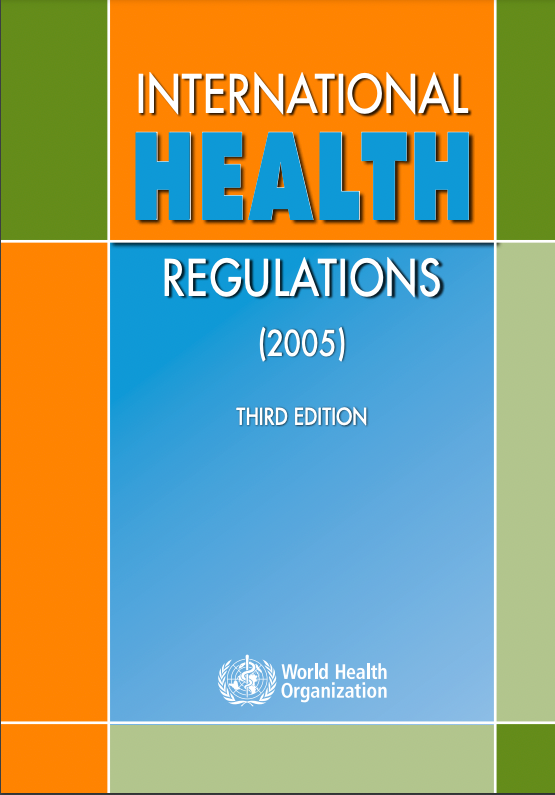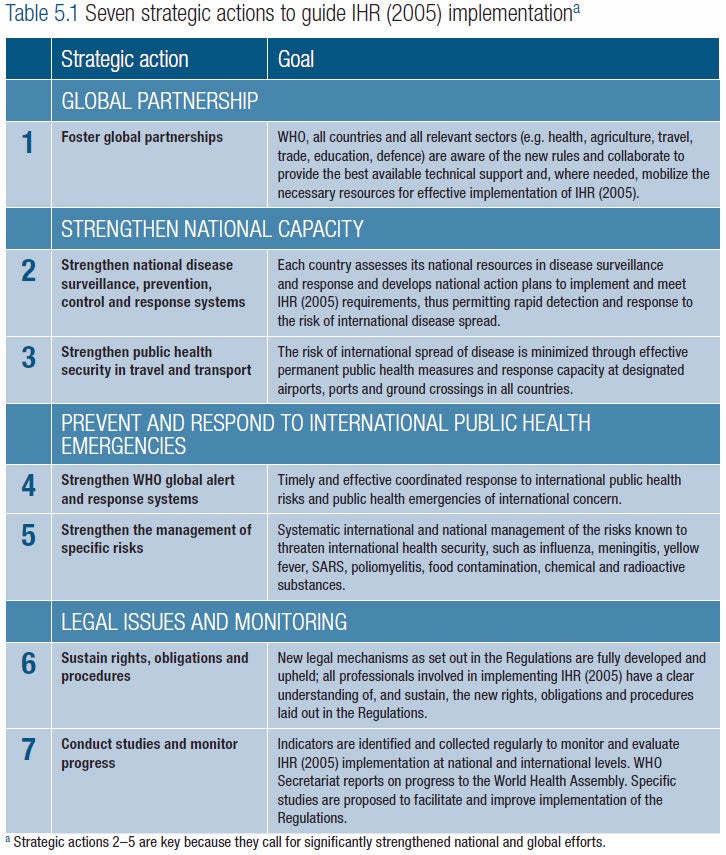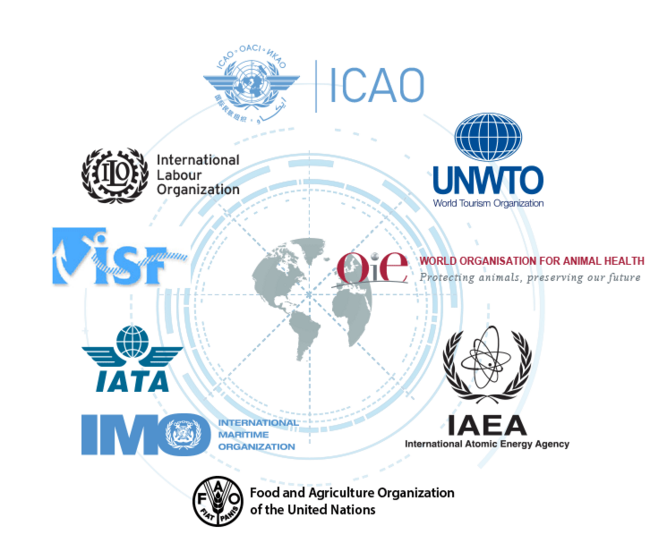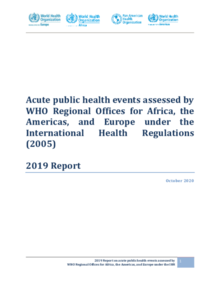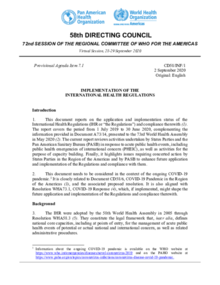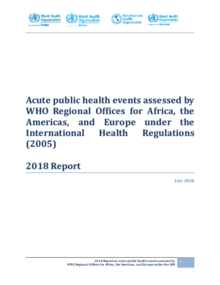The International Health Regulations (IHR) are an international legal instrument that covers measures for preventing the transnational spread of infectious diseases.
The IHR were adopted by the 58th World Health Assembly in 2005 through Resolution WHA58.3. They constitute the legal framework that, inter alia, defines national core capacities, including at points of entry, for the management of acute public health events of potential or actual national and international concern, as well as related administrative procedures.
The IHR (2005) has as purpose and scope "to prevent, protect against, control and provide a public health response to the international spread of disease in ways that are commensurate with and restricted to public health risks, and which avoid unnecessary interference with international traffic and trade".
- The IHR is legally binding on 196 countries, including the 194 WHO Member States.
- The IHR require countries to designate a National IHR Focal Point for communications with WHO, to establish and maintain core capacities for surveillance and response, including at designated points of entry.
- IHR introduce important safeguards to protect the rights of travelers and other persons in relation to the treatment of personal data, informed consent and non-discrimination in the application of health measures.
- 100% of States Parties - All 196 States Parties have reported on IHR indicators at least once in recent years.
- More than 440 experts at the WHO - Rosters of experts established by the WHO Director-General under IHR include more than 440 experts.
- 83% high-risk countries - 83% of high-risk countries in the Index of Risk Management have interagency preparedness plans.


